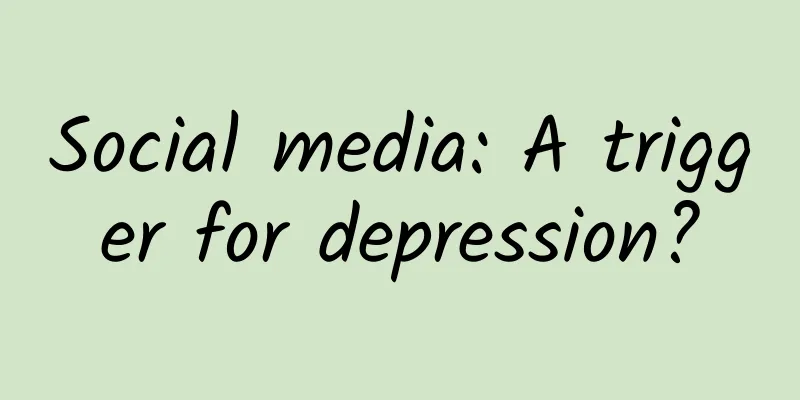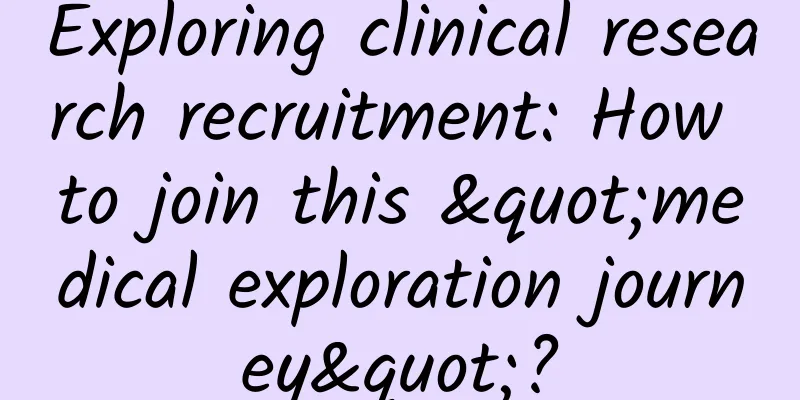|
Since 2009, multiple studies have shown that users who are heavily addicted to social media are more likely to suffer from depression. What is the relationship between social media and depression? Is social media really the trigger for depression? How much time do you spend on social media on an average day? How often do you log into Facebook? Do you stare at your phone screen all day, repeatedly checking the messages you receive on Twitter? Do you post to social media frequently? If you are a social media addict, then be careful. Recently, the University of Pittsburgh in the United States investigated the use of 10 popular social media, including the social network Facebook, the video site YouTube, the microblogging site Twitter, the social network Google Plus, the photo sharing app Instagram, the "ephemeral" photo sharing app Snapchat, the social news site Reddit, the microblogging site Tumblr, the visual social site Pinterest, the short video site Vine and the professional social site LinkedIn. The survey followed 1,787 users aged between 19 and 32. These users spent an average of 61 minutes a day on social media and visited social media sites an average of 30 times a week. It was finally found that users who were heavily addicted to social media were 2.7 times more likely to suffer from depression than ordinary users. This is not the first survey report on the relationship between social media and depression among users. As early as 2009, a study by the State University of New York at Stony Brook showed that excessive use of Facebook can cause depression in adolescent girls. In 2013, a research report from the University of Michigan stated that Facebook actually "destroys" the happiness of young people. The peer-to-peer and decentralized nature of social media has led many people to subconsciously believe that communication and interaction between people on social media can help relieve personal repressed emotions and gain a sense of security, and is a powerful tool to fight depression, but they ignore the negative effects of social media. Social Media and Depression Social comparison is one of the reasons that lead to depression among social media users. Many users like to share their happy lives on social media, such as posting a group of photos of Italian food on Facebook, pushing the good news "My wife is pregnant, I will be a father" on Twitter, or posting a video of honeymoon in Maldives with their significant other on YouTube. Sharing good news on social media will make the publisher happy, but it may have a negative impact on the viewers. Viewers compare their "boring time" with others' "happy life", which can easily lead to jealousy or inferiority. If the viewers are exposed to the highly idealized lives of their peers on social media for a long time, it will cause the jealousy of the viewers to expand, and they will mistakenly believe that others are living a happier and more successful life, which will gradually aggravate their inferiority complex and have a negative impact on their lives. Not only can positive messages from "peers" cause psychological harm to others, but negative messages on social media can also cause people to feel anxious and panic. Some people like to cry about their unfortunate experiences on social media and use the encouragement and comfort of others to relieve their own stress. But the problem with this approach is that although the pressure on the publisher of the information is reduced, it will put pressure on others. When others see something bad happen to someone they know, they will habitually assume what will happen if it happens to them. If they can't find a solution, they will fall into panic. For example, when some people see photos of classmates being bullied at school on social media, they will be afraid of going to school. Or when they see news that a female colleague was sexually assaulted on the way home, they will be afraid to go to work alone. If you watch these negative messages for a long time, it will make people afraid of the real world and think that the world is a dark and dangerous little house. Cyberbullying is also a major cause of depression among social media users. With the prevalence of social networking sites, cyberbullying has begun to evolve into a global wave and become an increasingly serious social problem. Compared with traditional school bullying, street bullying and gang bullying, cyberbullying is more terrible. Because traditional bullying victims still have safe havens and "breathing time" such as family and friends, while cyberbullying can occur 24 hours a day and anywhere. Victims are almost transparent to bullies, and information can be passed to anyone at any time, but bullies cannot see or touch it. In the virtual world, the bully cannot see the other party's reaction and feels that he does not need to be responsible. Therefore, he often bullies without restraint and unscrupulously until serious consequences occur. The anonymity of social media undoubtedly provides a "protective umbrella" for bullies, allowing extreme remarks that do not often appear in the real environment to become popular. Victims of long-term and uninterrupted exposure to insults, insults and threatening messages will produce fear and tension, making it easier to fall into the abyss of depression. In addition, users who are addicted to social media tend to sleep less. Lack of rest can make people feel anxious and have irregular heartbeats during work hours, and cause mental damage. In the long run, this can increase the risk of depression. Social media is taking action to fight depression Recently, a mental health charity called Blurt launched the hashtag #WhatYouDontSee on Twitter, so that people with depression can find a channel to bravely stand up and share the difficult days they have experienced. The initiator hopes to use this tag to raise people's awareness of depression prevention, eliminate people's misunderstanding of "depression", and strengthen people's attention to people with depression. Blurt wrote on its official website, "We often hear comments like 'He doesn't look like a depressed person', 'He smiles all day, how could he be depressed', 'She is so young and beautiful, what is there to be depressed about'. Depression can happen to anyone. Regardless of a person's age, gender, and personal experience, there is a risk of depression. This is a disease that is difficult to observe directly with the naked eye. We cannot judge whether someone has depression by his or her external performance. During this Depression Prevention Week, we hope to tell people what characteristics people with depression have through the sharing of people with depression on social media. Anyone can suffer from mental illness, and we should discover and deal with it in time." In addition, on Facebook, if the content you share involves depression, suicide and other issues, Facebook allows your friends to anonymously report your shared content. The official will send you a message to express concern and care for you, and encourage you to see a doctor. On Tumblr, if you post something about depression or self-destruction, you'll get a "Is everything okay?" Social media: A trigger for depression? Although multiple research data show that there is a correlation between social media and depression, whether there is a causal relationship between the two needs further verification. First, depression is not a product of the social media era, nor is it a new disease that has emerged with the Internet. Second, the interviewees may include users who have suffered from depression or have depression tendencies before using social media. These people have a negative attitude towards their own lives and want to seek help and vent on social media, but they do not get a response, and even get insults and ridicule in return, or they are trapped in the comfort of the virtual world and cannot extricate themselves, let alone face the real world, and thus become addicted to social media. Eventually they fall into a vicious circle. Although there is no research that can clearly prove that social media is the trigger of depression, we should always keep a balance. It is not advisable to be addicted to social media and avoid the real world. We should face any information on social media with a positive attitude. Be cautious when using the Internet, and go out for a walk. The world outside is more exciting than you think. |










